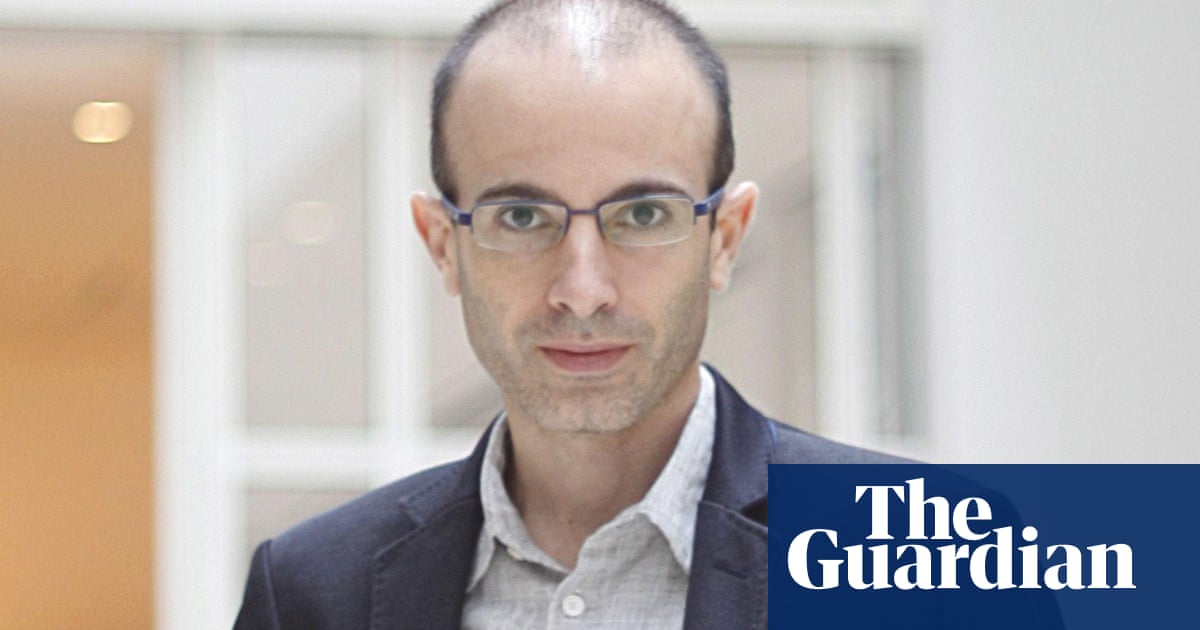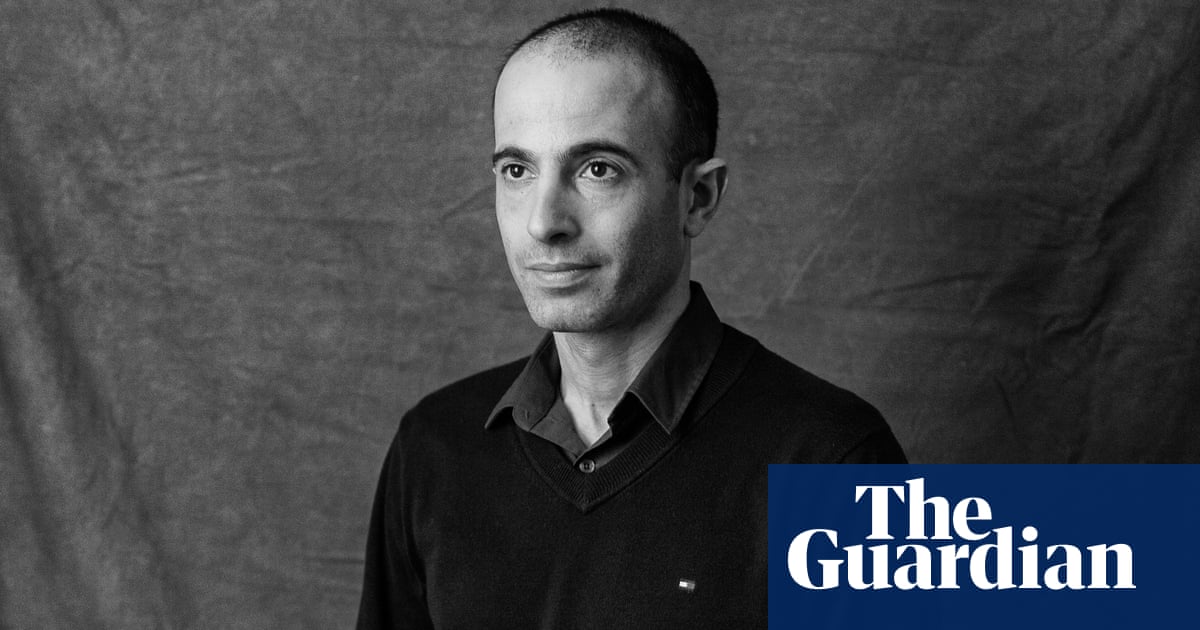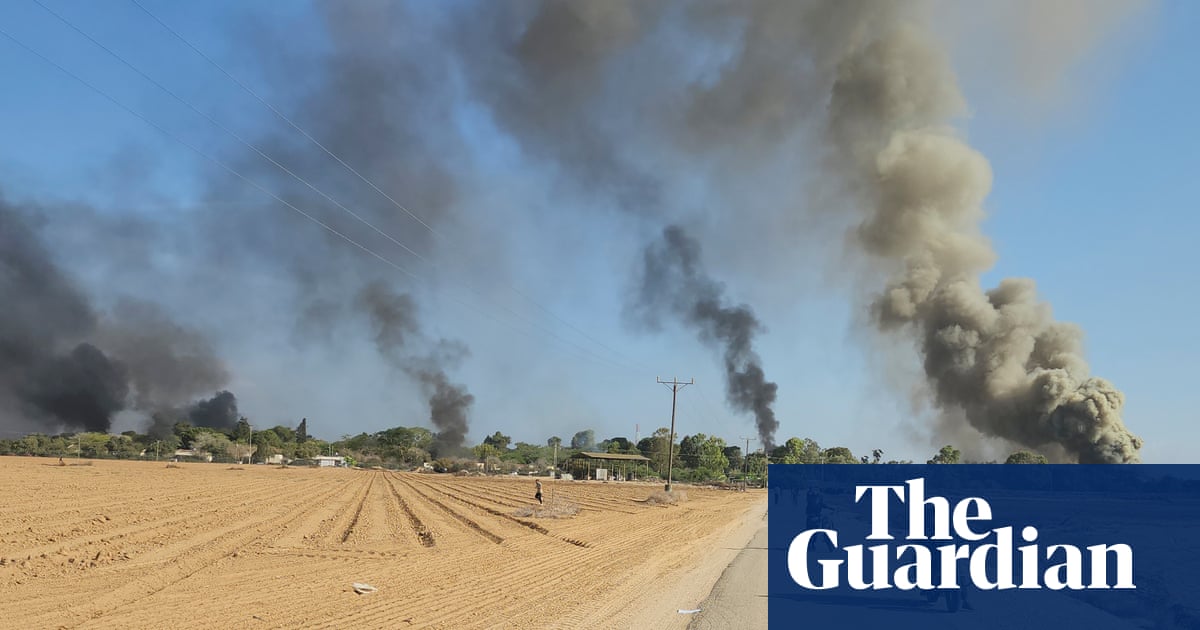
The Israeli historian Yuval Noah Harari has backed academics and peace activists in his home country in an attack on the “indifference” of some American and European progressives to Hamas atrocities, accusing them of “extreme moral insensitivity” and betraying leftwing politics.
Harari – the author of bestselling books including Sapiens and Homo Deus – joined 90 signatories of a statement expressing dismay with “elements within the global left … until now, our political partners” who had, on occasion, “justified Hamas’s actions”.
The 47-year-old, who has recently become a high-profile political activist in Israel, opposing Benjamin Netanyahu’s rightwing populist coalition and its plan to weaken judicial oversight, told the Guardian he intervened after speaking with peace activists in his home country who were “completely devastated” and “feeling abandoned and betrayed by supposed allies” in peace efforts, after academics, artists and intellectuals signed letters which failed to condemn Hamas.
Harari’s aunt and uncle lived in one of the kibbutzim targeted by Hamas in attacks that killed more than 1,400 people and saw more than 220 people taken hostage. They had survived after hiding while gunmen went house-to-house killing neighbours.
Speaking about the reaction from parts of the left in the US and Europe while on a visit to London, Harari said it was “shocking to hear some of the responses that did not only not condemn Hamas, but placed all responsibility on Israel” and to see “the lack of solidarity with regard to the horrific attacks on Israeli civilians”.
The letter, whose other signatories included the celebrated Israeli novelist David Grossman, said: “We never imagined that individuals on the left, advocates of equality, freedom, justice, and welfare, would reveal such extreme moral insensitivity and political recklessness.”
It concluded: “there is no contradiction between staunchly opposing the Israeli subjugation and occupation of Palestinians and unequivocally condemning brutal acts of violence against innocent civilians. In fact, every consistent leftist must hold both positions simultaneously.”
Harari cited a statement from 30 Harvard student groups issued the day after the attacks which said it held “the Israeli regime entirely responsible for all unfolding violence”. He said this suggested “the people that murdered babies don’t even have 1% responsibility, and 100% responsibility is on Israel’’.
He pointed to another statement by the Democratic Socialists of America on the day of the attacks which said: “Today’s events are a direct result of Israel’s apartheid regime.”
Giving the historical example of some US and European socialists supporting Stalin, he said: “This is not the first time the radical left, in pursuit of some fixed vision of justice, finds itself aligned with some very brutal movements and regimes.”
That approach may be founded in a “belief or fantasy that absolute justice is possible [where] one side is absolutely to blame for everything, including the crimes of the other side”.
“[But] reality is complex,” he said. “The same people can be victims and perpetrators at the same time. In most conflicts the blame for crimes and atrocities is not shared 100%/0% but somewhere in between. This is quite banal, but still people find it hard to accept this.”
The tenor of the response of international leftist groups was important to the left in Israel, he said, because it felt it was the last bastion of hope for a peaceful two-state solution and so needed international support.
He highlighted a letter signed by the actors Tilda Swinton and Steve Coogan and the director Mike Leigh calling for “an end to the unprecedented cruelty being inflicted on Gaza” without specifically condemning the Hamas assault, although it condemned “every act of violence against civilians and every infringement of international law whoever perpetrates them”.
“There is not a single word about the massacre [of 7 October],” Harari said.
The actor Maureen Lipman has already criticised the “Artists for Palestine” group, which compiled the letter as “bleeding heartless liberals”. She signed a letter with more than 200 others including the TV presenter Rachel Riley, which called on the BBC and “everyone in public life to call out Hamas for what it is: a terrorist organisation”.
Last week, the New York Times headlined its website with claims that Israel was behind the bombing of the al-Ahli Arab hospital in Gaza City. On Monday, the paper conceded it “relied too heavily on claims by Hamas” and editors “should have taken more care … and been more explicit about what information could be verified”.
Harari said that for the people in Israel and Gaza who “have suffered tremendously … your mind is so full of your own pain that any attempt to even draw your attention to the pain of somebody else feels like a betrayal”.
So, he said, “in a moment like this, we entrust the possibility of peace to outsiders”.
“We cannot hold it right now, but we hope that outsiders hold it for us and help de-escalate the current situation,” he said. “The job of intellectuals, artists and scholars is to try and go deeper. [It is] to try and see the complexity of reality, especially in today’s climate of post-truth. It feels intellectually and emotionally lazy to just pick a side.”
Harari said he believes “the idea that Israel should just destroy Gaza is unacceptable”.
“We don’t see a campaign of just obliterating Gaza,” he said. “The situation of the Palestinian population is horrific but at least it is clear that Israel is not intending to kill as many civilians as possible. This is not what the Assad regime did in Homs and Aleppo. The only solution will come when not only is Hamas disarmed but the Palestinian people have some kind of alternative future.”












